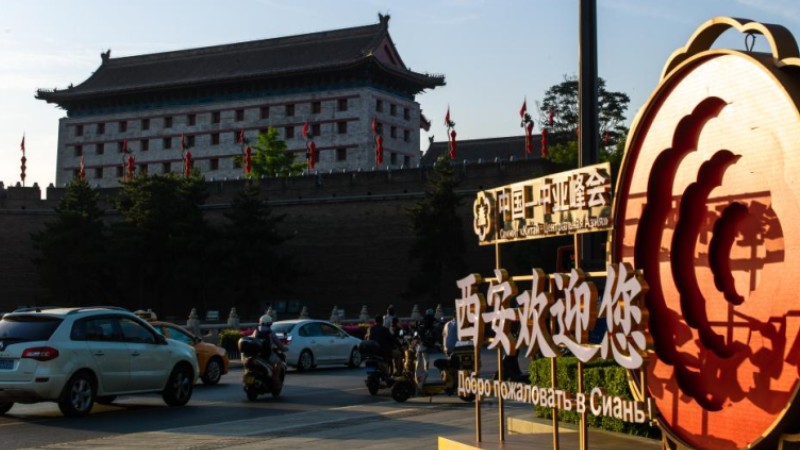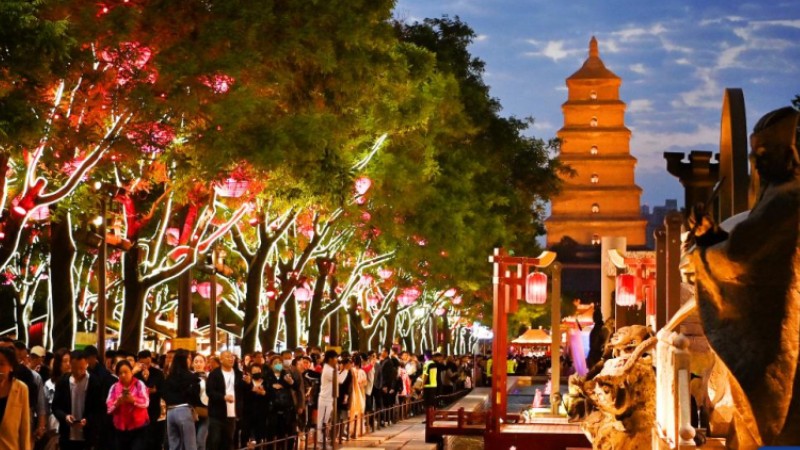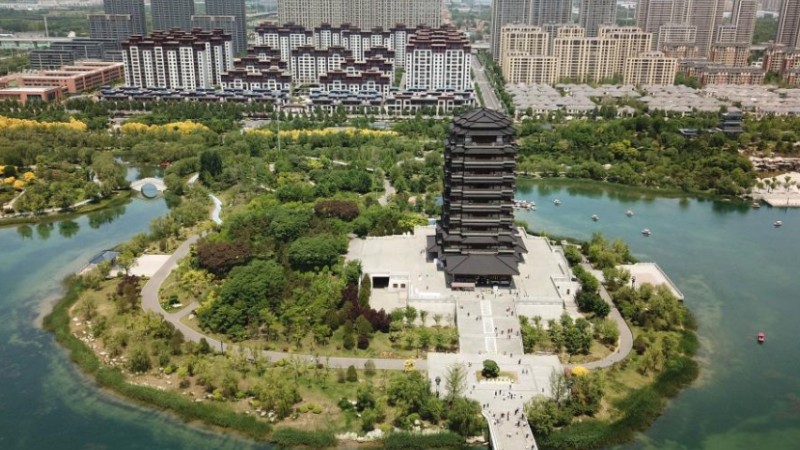"Shared village" awakens old houses in east China
NANCHANG, May 17 (Xinhua) -- Hearing the ballads floating from "Shi Yin," a tea bar in Huanghuawan, east China's Jiangxi Province, visitors and residents could not help but walk into it.
"I wish folks here could enjoy recreational activities as city dwellers do," said Shi Qingxiong, the bar's owner.
Situated about 5 km from the urban area of Longnan City in southern Jiangxi, Huanghuawan is a riverside zone within Liantang Village in Dujiang Town. It had been "hollowed out" years ago after many locals moved to resettle in surrounding urban areas, leaving their old houses empty and dilapidated.
To revitalize these housing resources and develop rural tourism, the local government commenced building Huanghuawan into a "shared village" demonstration site at the end of 2021.
That was when Shi, a Longnan native who previously worked as an interior designer in southwest China's Chengdu, returned to rent a yard and build the tea bar with a few friends.
"The point of a 'shared village' lays in sharing resources of land and housing," introduced Li Jing, head of Dujiang Town. Trusteeship stations have been set up in every village to manage the idle houses provided by their owners voluntarily, and government subsidies and self-raised funds pay for renovations.
In Shi's opinion, the "shared village" meets the needs of entrepreneurs who dream about a pastoral lifestyle, while those houseowners can obtain rental income. Shi rents for about 24 yuan (about 3.44 U.S. dollars) per square meter a year.
Villagers' opinions mattered greatly during the construction of Huanghuawan. According to Chen Jing, the village Party chief of Liantang, some locals were concerned about whether their leased houses would be properly managed, and some wanted to ensure that the village's transformation provided convenience rather than the other way around.
They have put forward their own ideas actively about details of the area planning, such as the location of public toilets and even the color of the tiles on the roof of their ancestral temple, added Chen.
Since Shi's bar is near the temple, he abandoned an original two-story house design with more usable space, and adopted an all-wood one-story structure to match the traditional vibe.
"I want my bar to incorporate the vernacular buildings of Huanghuawan instead of replacing them," said Shi.
So far, 15 businesses, including catering, accommodation, and camping, have settled in Huanghuawan. An average of 13,000 visitors have come here every month since the beginning of this year.
Near lunchtime, tourists flood into Zeng Hui's restaurant to taste the traditional Hakka cuisine.
After engaging in the catering business in the city for some time, Zeng saw the development prospect of Huanghuawan and became one of the earliest merchants to settle here. The restaurant has seen a monthly revenue of more than 180,000 yuan, according to Zeng.
The "shared village" project is part of Longnan's plan to revive historic buildings. The city boasts a treasure trove of traditional Hakka Round Houses, and many of them date back hundreds of years. They have been restored to their former glory highlighting original styles and features.
Ordinary residential buildings like those in Huanghuawan have acquired a new look with more public facilities installed.
Several other villages and towns in Longnan have also started rural tourism development based on their unique resources. Young people who grew up here are returning for jobs near home, injecting vitality into the aging villages.
In Dongkeng Village, paper-making and bamboo-weaving studios have opened to attract tourists interested in learning the time-honored local crafts. Zhenggui Village, however, has been built into a homestay hub with over a dozen traditional Hakka-style bed and breakfasts.
"Represented by the 'shared village,' Longnan's plan to revive historic buildings has offered a platform for rural tourism and entrepreneurship and contributed to Hakka culture's preservation and inheritance," said Li of Dujiang Town.
Photos
Related Stories
Copyright © 2023 People's Daily Online. All Rights Reserved.









